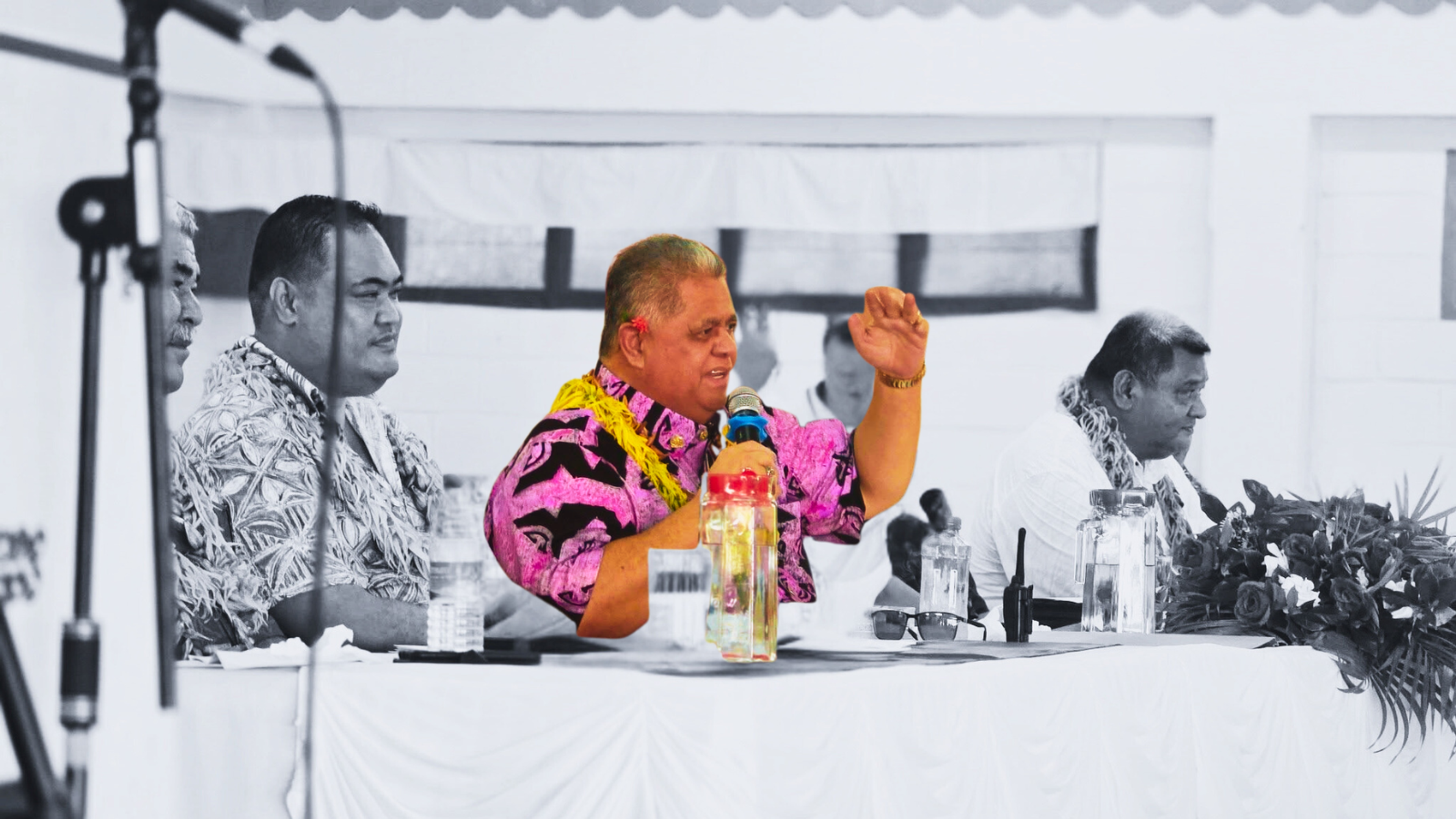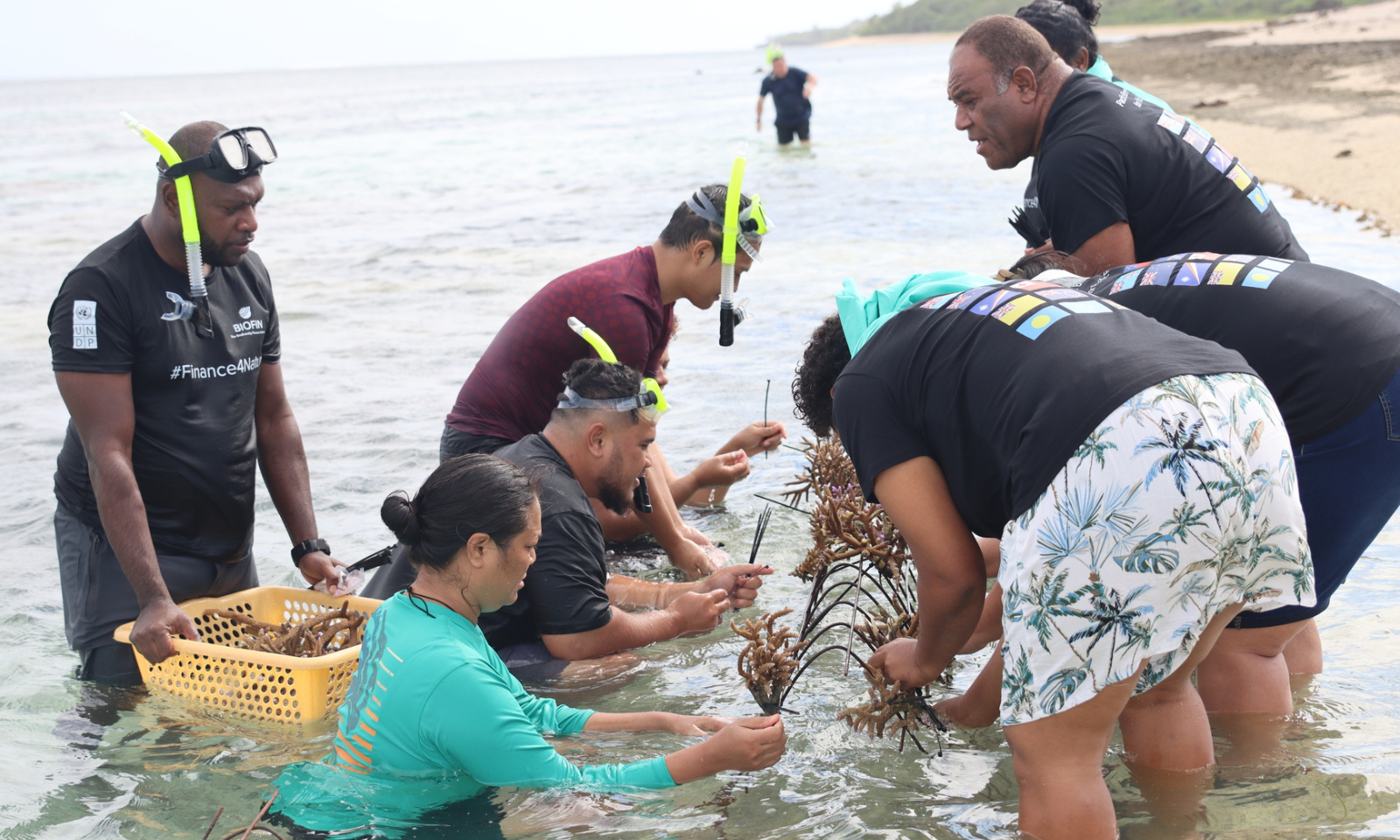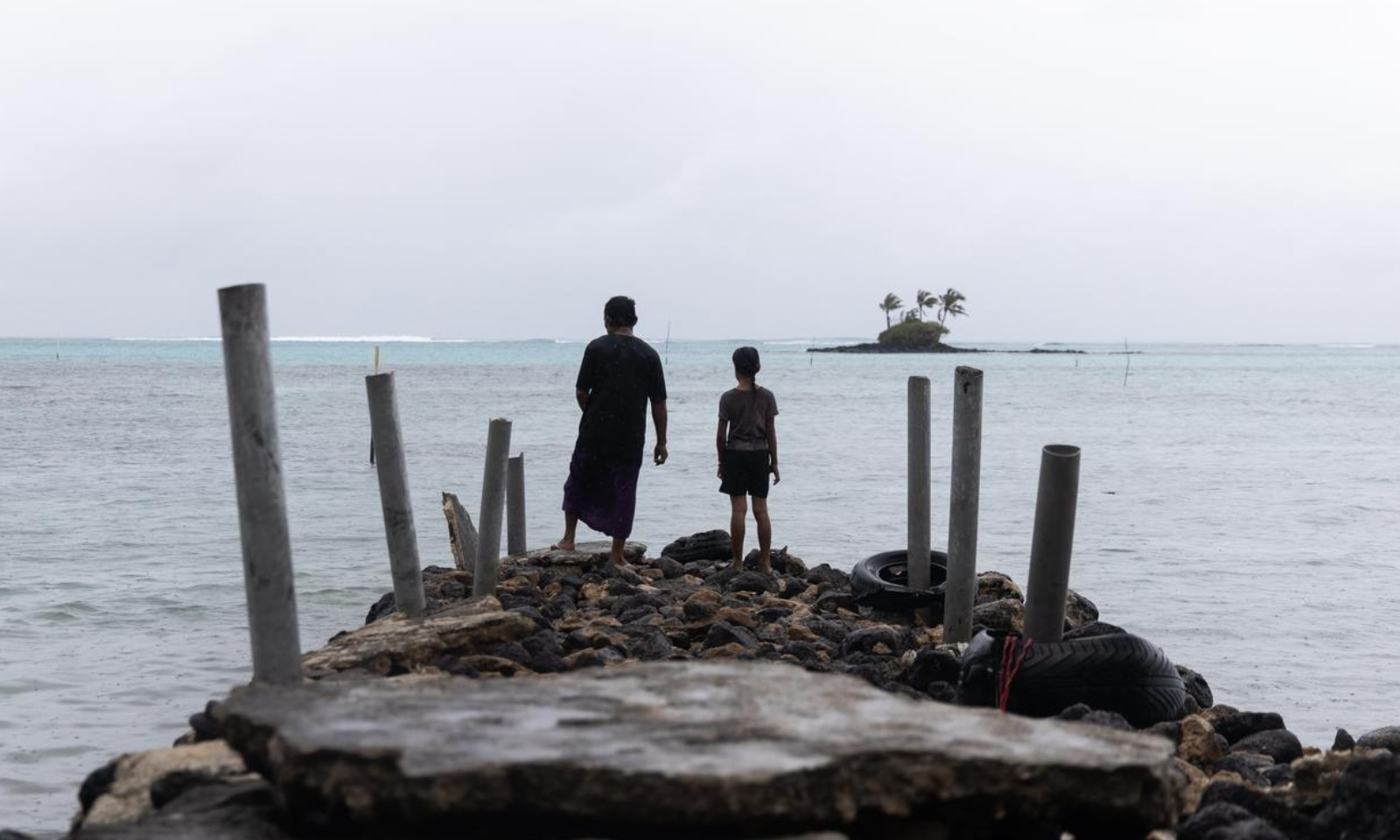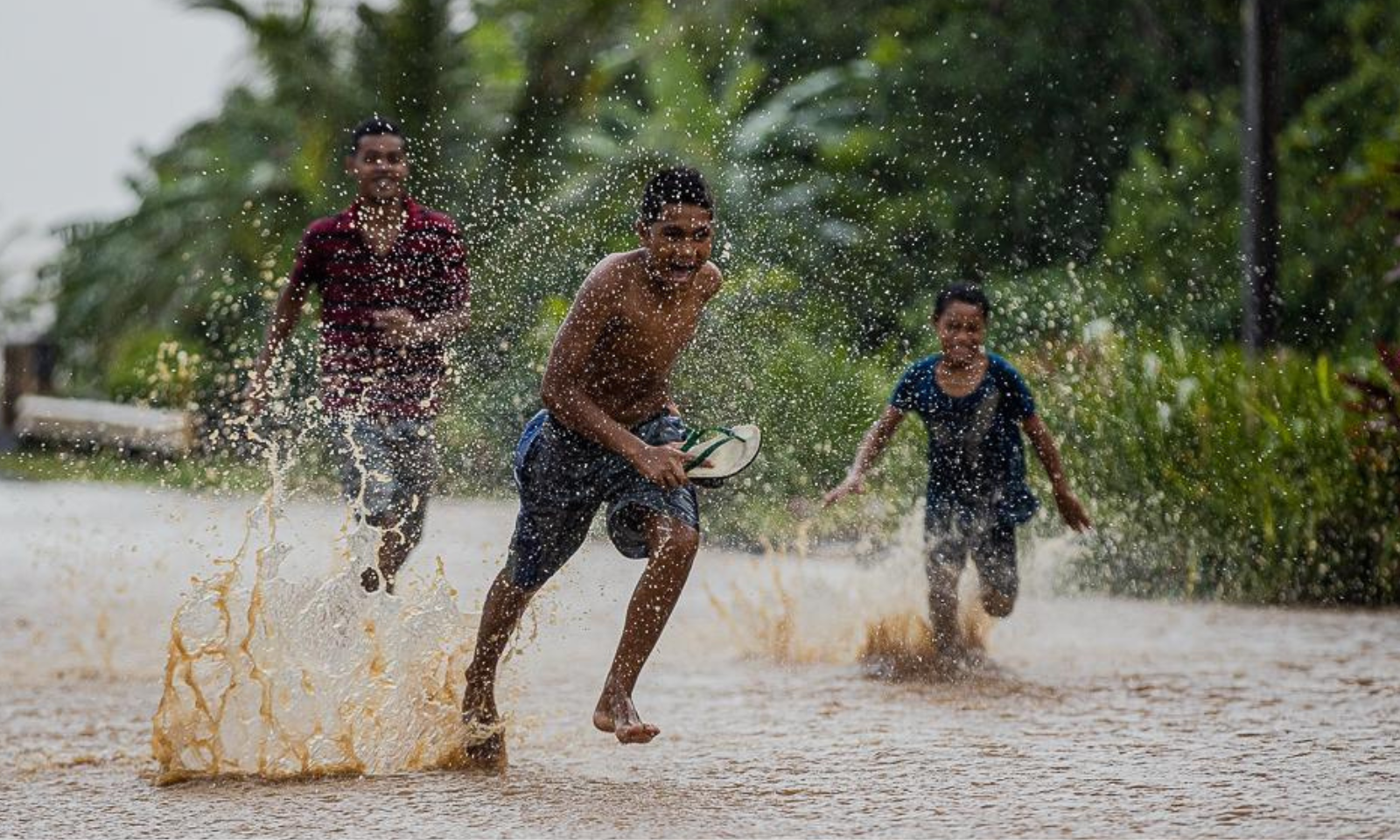

Kevin Petrini says grassroots engagement is the key to development projects.
Photo/Kevin Petrini/TwitterX
Local engagement and global action in Pacific’s climate change fight
A UN official urges community engagement in climate adaptation efforts as he departs for Africa after 24 years in regional development.



New Zealand-United States minerals talks spark concerns over Pacific seabed mining

From netball star to Matatū: Fia Laikong speaks on leap of faith



New Zealand-United States minerals talks spark concerns over Pacific seabed mining

From netball star to Matatū: Fia Laikong speaks on leap of faith
The outgoing United Nations Development Programme’s (UNDP) Deputy Resident Representative for the North Pacific says there is a need for alignment of priorities from grassroots to top level to effectively address climate change.
Kevin Petrini points to a shift in climate change approaches from local to global levels. A shift, he says, is “needed to actually make the difference... to address and adapt to climate change".
In an interview on Pacific Mornings, he reflects on his 24 years in regional development.
Petrini says many projects fail due to critical lapses in community engagement. He highlights the importance of intermediaries, such as religious and traditional leaders, as vital allies for engagement within Pacific communities.
“Unless you work with, and through, and engage strongly with communities, no matter how big or small [a project]...you’re not going to succeed.
“You have to do it in a really sensitive way.. actually trying to communicate what’s happening because it can be tough.”
A Pacific Community (SPC) report reveals that the Pacific receives less than 0.03 per cent of global climate financing, far below the seven per cent needed for development and resilience goals, due to inadequate distribution systems that do not cater to the specific needs and capabilities of Small Island Developing States.
A Ministry of Foreign Affairs-funded study further supports this, the Pacific Ocean Climate Crisis Assessment (POCAA), that was presented at COP29 in November last year, revealing that access to climate financing is complicated by the fact that it is usually structured as loans and funnelled through institutions like the International Monetary Fund (IMF) and the World Bank (WB).
Petrini notes a shift from ‘small, local’ community-based adaptation work in the 2000s to an influx of policymakers seeking to integrate climate change measures into their policies.

Coral planting at Naidiri Marine Biodiversity Park in Sigatoka, Fiji. Photo/UNDP Pacific Office in Fiji
He says that political will and bureaucratic buy-in are critical for ensuring that the right policies are implemented effectively and that community engagement is optimised.
When asked whether development partners, such as the UNDP, have become more responsive to specific priorities, Petrini is optimistic about the integration and ‘cross-fertilisation’ of efforts globally.
“I think that we’re closer than ever. And I think that is because right now [in the climate realm], UNDP is a key interlocutor,” he says. “We can bring experiences from other parts of the world.
“When we did work in Tuvalu on coastal adaptation.. that was exported from the Pacific to teach other parts of the world, even in Africa.”
Petrini says building capacity in governance is a focal point of UNDP’s development efforts.
“Something we’ve been cutting-edge on is actually the linkages between climate change and governance. Because if you have the governance side of it correct, then you’ll be able to push the resources to the places they need to go.”

Existing transport challenges are exacerbated by the effects of climate change, as seen here in Manono, Samoa. Photo/Junior S Ami
The POCAA report highlights the systemic inequities of existing global fund distribution mechanisms and calls for simplified and streamlined processes that recognise Pacific agencies.
Tuvalu’s Climate Change Minister, Maina Talia, highlighted at COP29 that the link between climate impacts and debt distress is well recognised.
“When climate-vulnerable countries have high levels of debt, they have to spend more on repayments and less on climate adaptation.
“This makes them more vulnerable to climate disasters and other long-term climate impacts, which can cause economic damage as well as social and environmental loss.”
Petrini says Pacific communities are well-acquainted with the impacts of climate change, and their resilience serves as a strength in navigating geopolitical challenges.
Having begun his service in the Pacific as a Peace Corps volunteer in Sāmoa in 1998, he reflects on his journey.

Children play in shallow flood waters in Laulii, Samoa. Pacific SIDS face storm surges, coastal erosion and flooding every year. Photo/Junior S Ami
When asked if he plans to write a book about his experiences and the role of Pacific actors in development, he says it is still a work in progress.
Petrini says there is a surprising gap in knowledge among Pacific communities about one another.
“There was one recent trip where a delegation got on... from Palau, from FSM and RMI, and we were stranded in Kiribati for a night or two.
“I realised that the delegation had never been to Kiribati before. And I was the one explaining a bit about Kiribati to people who are neighbours.
“There are some stories that will be good to share, and just a snapshot of one person’s experience in the Pacific. And I hope it could help people a little bit if they’re going to be doing development here.”
Listen to Kevin Petrini's full interview below.